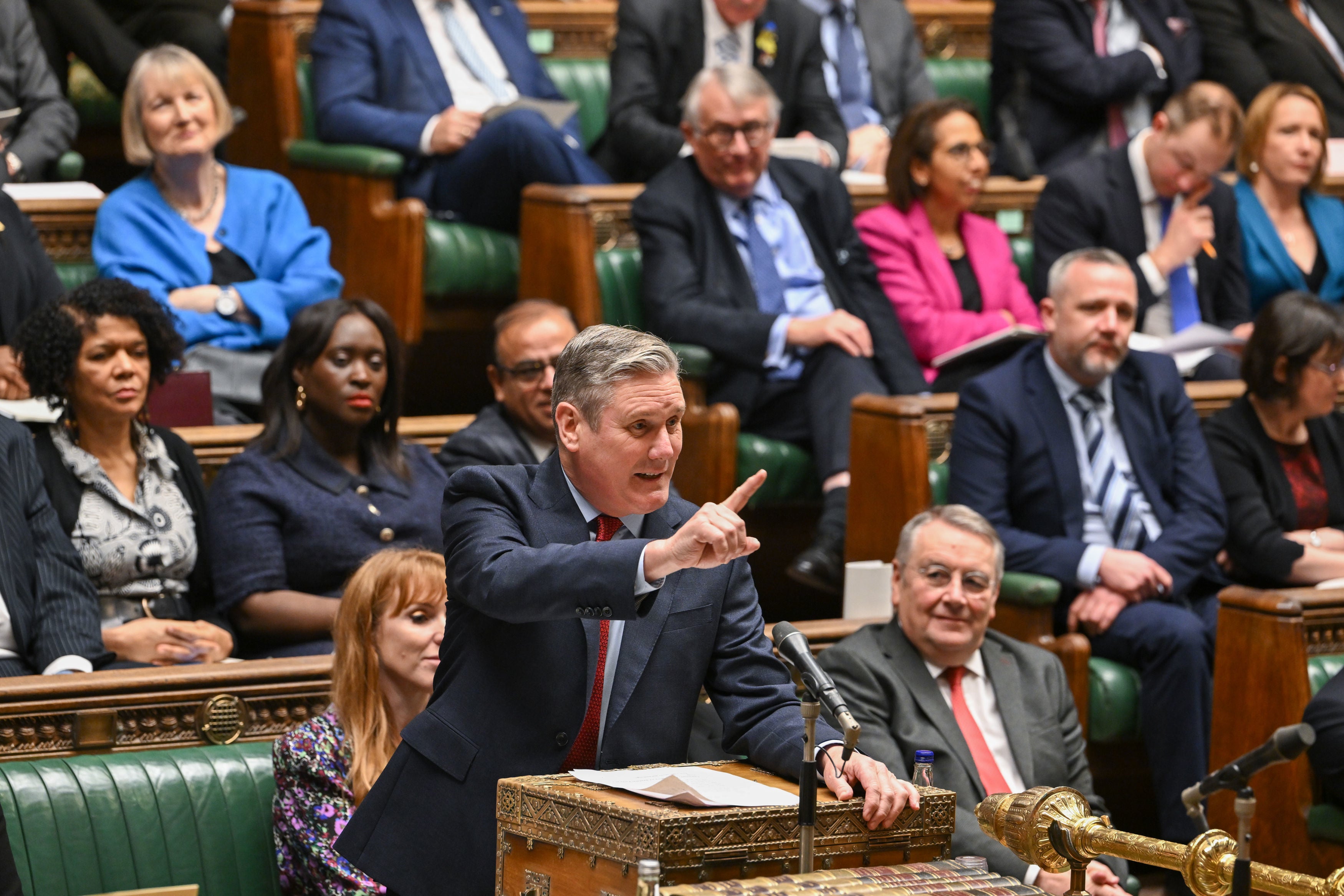At the final PMQs of the year, Keir and Rishi parried like it’s 1973
The ghosts of leaders past appeared to haunt Starmer and Rishi Sunak: 50 years after Ted Heath warned us about the harsh Christmas we were about to have, John Rentoul is struck by the 70s parallels


Today is the 50th anniversary of Ted Heath’s TV address to the nation in which he warned the people that it would be “a harder Christmas than we have known since the war”.
The parallels are irresistible. An unpopular government, locked in disputes with striking unions at a time of inflation. Interest rates up. The economy heading into recession. A war in Israel.
According to Google, even the weather was the same: a cold start, but then generally a mild, unsettled month, with some cold snaps and snow in the north.
Keir Starmer, the Harold Wilson of our day, knows that things are going his way. The country is unimpressed with a Conservative government that cannot make the basics work. In 1973, a miners’ overtime ban was running down coal stocks and Heath was about to announce a three-day working week to conserve energy.
In 2023, Rishi Sunak has failed to deliver four of his five promises to get the country back on track. This morning’s GDP figure – which showed that the economy shrank faster than expected in October – means that pledges on growth, debt, NHS waiting lists and the small boats are all unfulfilled. Only halving inflation has been met, and that has little to do with the government.
Starmer is having an easy time of it at Prime Minister’s Questions these days, and was relaxed enough to ask a good first question about the season of goodwill – “has anybody told the Tory party?”
Sometimes, he can make a good, scripted start and then lose himself in a welter of statistics and hard-luck stories, but today he kept up the easy mockery, engaging in the old game of reading out disparaging quotations about the prime minister from anonymous Conservative MPs and asking the authors of them to put their hands up. “Inexperienced,” was one of them. “Really bad at politics,” Starmer read out. “Who said that? Come on – hands up.”
It is a good game, one that you could imagine Wilson, one of the most talented leaders of the opposition, playing in the 1970s. It worked because Tory MPs recognised the criticisms as ones that many of them had made of their leader in private.
There is something of Heath’s frustration with the constraints of politics in Sunak’s tetchiness when faced with people who won’t accept that he has come up with the best solution to a complex problem.
Sunak applied himself to the Gordian knot of the Northern Ireland protocol when he became prime minister and solved the problem he was set with something called the Windsor Framework. But then the Democratic Unionist Party changed the question and refused to restart the devolved government.
Sunak is still trying. Sir Jeffrey Donaldson, the DUP leader, asked a choreographed question at PMQs today about amending the UK Internal Market Act, and the prime minister was very polite, saying “I recognise the need to do more” and that the government “stood ready” to legislate.
Sunak keeps thinking he has found the solution to the small boats problem, but the Supreme Court, the European Court of Human Rights and a variegated array of Tory MPs’ factions keep changing the question and raising irrelevant objections. No wonder the prime minister has lost some of his early bounce.
Heath, too, could not understand why the miners’ union would not accept his common-sense solution to the problem of the wage-price spiral. If only everybody showed restraint in their pay demands, it would be possible to regain control of the economy and everyone would benefit.
But instead, on 24 January 1974, the National Union of Mineworkers voted to strike – and on 7 February, Heath called an early election on the slogan: “Who governs Britain?” He believed the British people were on his side, when public opinion actually thought he was just as much to blame for industrial conflict as the union bosses. The voters tended to think that Wilson would be able to get on with the union leaders better.
They were right about that in the short term, but had no good reasons for thinking that Labour could solve the underlying problems. Just as today, they have few reasons for thinking that Starmer has answers to the problems facing the country that are very different from the government’s.
But when last week Oliver Dowden, the deputy prime minister, told us to stock up on candles and wind-up radios, in case there are electricity blackouts, we should look forward to a very 1973 Christmas.





Join our commenting forum
Join thought-provoking conversations, follow other Independent readers and see their replies
Comments